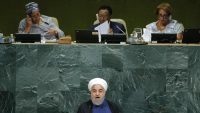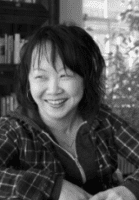September 28, 2017
Edited by David Sanders
Specimen Days
1596—Vredius, [Olivier de Wree], Flemish historian/poet/mayor, is born.
1618—Joshua Sylvester, English poet (b. 1563), dies.
1824—Francis Turner Palgrave, England, poet (Golden Treasury)/prof (Oxford), is born.
1875—Aleksei K. Tolstoi, Russian poet and writer, dies at 58 [OS].
1879—Nathan C Meeker, US, poet/writer, murdered.
1924—Antonio Jacinto, Portuguese West Africa, Angolan poet, is born.
1966—André Breton, French writer and poet, founder of Surrealism, dies at 70.

I wanted to write you a letter
my love
a letter that would be brought to you by the passing wind
a letter that the cashews and coffee trees
the hyenas and buffaloes
the alligators and grayling
could understand
so that if the wind should lose it on the way
the beasts and plants
with pity for our sharp suffering
from song to song
lament to lament
gabble to gabble
would bring you pure and hot
the burning words
the sorrowful words of the letter
—from “Letter from a Contract Worker” by António Jacinto
“I wanted to write you a letter / my love / a letter that would be brought to you by the passing wind” António Jacinto
World Poetry
PEN Welcomes Release of Poet Mahvash Sabet after More than a Decade in Prison

PEN International welcomes the release of teacher and poet Mahvash Sabet, one of a group of seven Baha’i leaders known as the ‘Yaran-i-Iran’ – ‘Friends of Iran’ – detained in 2008 for their faith and activities related to running the affairs of the Bahá’í community in Iran. On 18 September 2017, Sabet was the first of the group to be released from prison, having served almost a decade in detention. Following her release, she has issued a public call for the release of her six fellow detainees.
Pakistan Sentences Christian to Death for Insulting Muhammad in Poem Sent on WhatsApp
A Pakistani Christian man was sentenced to death for a poem he allegedly wrote that insulted Islam. According to The Daily Wire, 35-year-old Nadeem James sent the poem to a Muslim friend on WhatsApp. The poem supposedly contained derogatory comments towards Muhammad. “James was handed a death sentence by the court on Thursday on blasphemy charges,” his defense lawyer Anjum Wakeel said.
Iran’s President Rouhani Trolled Trump with Poetry

Everyone expected Iranian president Hassan Rouhani to hit back after US president Donald Trump yesterday called his government a “corrupt dictatorship behind the false guise of a democracy.” But probably not everyone expected him to do it with quite so much elegance. The president of a country that developed a nuclear program to strike fear into the hearts of its neighbors chose to use his slot at the UN to talk instead about its history of soft-power influence. Dressed in his trademark white turban and a dark robe, Rouhani spoke of Persian literary masters from the 12th and 13th centuries.
Iranian president Hassan Rouhani trolled President Trump by reciting Persian poetry from the 12th and 13th centuries.
Recent Reviews
Anthony Madrid, Try Never.
by Joshua Weiner
There’s a clever-cleverness in contemporary American poetry that keeps alive older verse traditions, straddles generations, and seems very much a boy thing—Frederick Seidel, Paul Muldoon, Michael Robbins, and Adam Fitzgerald come quickly to mind. But my money’s on Anthony Madrid.
Imagination Is LIke Grace: Meghan O'Rourke's Sun in Days
by James Davis May
Each time I try to articulate why it is I admire Meghan O’Rourke’s poetry so much, I start typing “Her imagination” and then delete the words. No one says “imagination” anymore, I keep telling myself. I have no data on this—so it’s anecdotal, and should be taken with a grain of salt—but it seems to me contemporary poetry reviews almost never discuss the imagination, let alone single it out as a poetic virtue. Reviews will address image, the richness of the language, thematic coherence, or narrative clarity (or the lack thereof), but imagination rarely comes up. It’s almost an antiquated word, a term that’s more likely to be heard in, say, a seminar on British Romanticism or, oddly enough, a kindergarten class, than in a review or, for that matter, a creative writing workshop. Maybe that’s because when people say, “Writing can’t be taught,” the imagination is really what they’re talking about. Syntax, meter, image, idiom, each can be learned, crafted, and improved upon, at least to some extent, while imagination—that faculty that, as Coleridge puts it, “dissolves, diffuses, dissipates, in order to recreate”—is like grace: you either have it or you don’t. In other words, it’s talent, the ability to be interesting, and it’s exactly the quality I admire most about Meghan O’Rourke.
A Tour de Force of Grief: Sun & Urn by Christopher Salerno
by Scott Wordsman
“I am no // surrealist but every memory / to me has a dial,” writes Christopher Salerno in his currency-worried, fetishistic gem, ATM (2014). In his follow-up and latest collection, Sun & Urn (University of Georgia Press), Salerno cranks this dial of memory a few notches higher, for the poet now finds himself grappling with a matter more serious than money: his father’s untimely death.
Anthony Madrid embodies a clever-cleverness in contemporary poetry that keeps alive older verse traditions and straddles generations.
Broadsides
On Finding a Lost Ezra Pound Poem in a Castle
by Daniel Swift
Hast thou 2 loaves of bread
Sell one + with the dole
Buy straightaway some hyacinths
To feed thy soul. —Ezra Pound
I found this short poem by Ezra Pound as I was researching a book about Pound’s years in Saint Elizabeths Hospital. It appears for the first time in my book The Bughouse and in the Fall issue of The Paris Review. Finding a previously unpublished poem by Ezra Pound sounds both adventurous and grittily archival, but really, this was neither.
On Finding the Right Word
by Marilynne Robinson
One of the things I love about Emily Dickinson is the way that, every time I read her poetry, I feel as though I’m encountering it for the first time. It has a reserve of meaning that seems to open very slowly over a long series of readings. Part of that is due to the extreme compression of her poems, which strip away everything inessential, greatly magnifying the potency of each individual word. She puts an extraordinary pressure on language by her parsimoniousness. But she restricted not only her language very narrowly — apparently, she restricted her life very narrowly, too. Out of this came a body of poetry that really has no equivalent in American literature.
Finding a previously unpublished poem by Ezra Pound sounds both adventurous and grittily archival, but for Daniel Swift, it was neither.
Drafts & Fragments
Liu Xiaobo’s Last Text

This text is the last thing that Liu Xiaobo, the literary critic, poet, and human rights activist, wrote. He was awarded the Nobel Peace Prize in 2010, two years after he was imprisoned for eleven years on suspicion of “inciting subversion of state power.” His “crime” was to speak out for freedom of speech, basic human rights, and democratic elections. He died on July 13 of liver cancer in a hospital in Shenyang.
Liu Xiaobo’s last piece of writing began, “My praise could be a poison impossible to forgive:”
Poetry In the News
A Young Poet from Harvard Was Just Given Another Prestigious Honor

Harvard University sophomore Amanda Gorman is the first youth poet to open the Library of Congress’s literary season, The Harvard Crimson reported. On Wednesday night, Tracy K. Smith, a Pulitzer Prize-winning poet and Princeton professor, gave her inaugural reading as the newest poet laureate of the United States. Smith, who was born in Falmouth and attended Harvard University, succeeds poet Juan Felipe Herrera in the field’s most prestigious role. Before welcoming Smith to the stage, Librarian of Congress Carla Hayden introduced Gorman.
African-American Museum Celebrates Groundbreaking Poet
Linda Hutton has fond memories of listening to Gwendolyn Brooks recite some of her most famous poems on tape. On Tuesday, the African-American Cultural & Genealogical Society Museum belatedly celebrated the late, groundbreaking poet's birthday anniversary with a night of poetry readings and discussion. Brooks would have turned 100 years old on June 7.
Sinéad Morrissey Wins £10,000 Forward Poetry Prize

Sinéad Morrissey has won the £10,000 Forward Poetry Prize for Best Collection for On Balance at the Royal Festival Hall in London tonight, cementing her reputation as the leading Irish poet of her generation. Ocean Vuong was awarded the Felix Dennis Prize for Best First Collection (£5,000) for Night Sky with Exit Wounds and Ian Patterson was awarded Best Single Poem for The Plenty of Nothing, an elegy to his late wife, the writer Jenny Diski.
Harvard University sophomore Amanda Gorman is the first youth poet to open the Library of Congress’s literary season.
New Books
Among Ruins by Robert Gibb
[Paperback] University of Notre Dame Press, 90 pp., $18.00

Among Ruins is the final volume of Homestead Works, a collection of four books of poetry that explore the industrial past and legacy of the old steel town of Homestead, Pennsylvania, and, by extension, Pittsburgh.
Vasectomania by Matthew Guenette
[Paperback] University Of Akron Press, 64 pp., $14.93
Lee Ann Roripaugh called American Busboy a "wry anti-mythology" where an "anti-hero busboy in an anonymous Clam Shack! tangles with the monotonous delirium of work, the indignities and poor pay of unskilled labor [and] the capricious deus ex machina of mean-spirited middle management." We might call Vasectomania the busboy fast-forwarded 20 years, a little bit wiser and tangling now with the monotonous delirium of parenting, tangling with the indignities of flailing (and often failing) as a father and partner and dealing with his own social-cultural traditions of being raised in a blue-collar town by a single mother whose voice seems to haunt his every move.
Palm Frond with Its Throat Cut by Vickie Vértiz
[Paperback] University of Arizona Press, 72 pp., $16.95

Palm Frond with Its Throat Cut uses both humor and sincerity to capture moments in time with a sense of compassion for the hard choices we must make to survive. Vértiz’s poetry shows how history, oppression, and resistance don’t just refer to big events or movements; they play out in our everyday lives, in the intimate spaces of family, sex, and neighborhood. Vértiz’s poems ask us to see Los Angeles—and all cities like it—as they have always been: an America of code-switching and reinvention, of lyric and fight.
Of Cartography: Poems by Esther G. Belin
[Paperback] University of Arizona Press, 88 pp., $16.95
One of our generation’s most important literary voices, Esther G. Belin was raised in the Los Angeles area as part of the legacy following the federally run Indian relocation policy. Her parents completed the Special Navajo Five-Year Program that operated from 1946 to 1961 at Sherman Institute in Riverside, California. Drawing from this experience, her poetry, activism, and multimedia work speaks to larger issues of urban Indian identity, acceptance, adaptation, and cultural estrangement. In this long-anticipated collection, Belin daringly maps the poetics of womanhood, the body, institution, family, and love. Depicting the personal and the political, Of Cartography is an exploration of identity through language. With poems ranging from prose to typographic and linguistic illustrations, this distinctive collection pushes the boundaries of traditional poetic form.
Radioactive Starlings: Poems by Myronn Hardy
[Paperback] Princeton University Press, 96 pp., $17.95

In Radioactive Starlings, award-winning poet Myronn Hardy explores the divergences between the natural world and technology, asking what progress means when it destroys the places that sustain us. Primarily set in North Africa and the Middle East, but making frequent reference to the poet’s native United States, these poems reflect on loss, beauty, and dissent, as well as memory and the contemporary world’s relationship to the collective past.
Palm Frond with Its Throat Cut uses both humor and sincerity to capture the hard choices we must make to survive.
Correspondences
“Sometimes People Write Poetry with Their Feet”: A Conversation with Tamim Al-Barghout
by Kate Shannon Jenkins

Over the past twenty years, thousands of people have attended performances by the Palestinian-Egyptian poet Tamim Al-Barghouti. In conversation, he speaks with the booming voice of someone practiced at commanding a crowd. He is deliberate about word choice, rummaging around for the precise match, and thoughtful about what he will say on the record. When we met this summer, at a hotel in Amman, Jordan, he recorded our conversation on his phone. He knows that his words can have serious consequences.
I Come To Poetry with Cupped Hands: In Conversation with Phoebe Wang
by Susan Gillis

Every few minutes a drone over my left shoulder causes me to look up from the hammock, where I've received multiple mosquito bites while immersed in Phoebe Wang's lyric poems. The drone is bigger than a mosquito: a hummingbird, perhaps attracted by the red strings slung between trees, or the open throats of daylilies. It hovers as though still, as though watching; maybe I've set myself up in a nest zone. The physical world grounds this poet's work; details are precisely observed and energy-of-being lands on the page in orderly, measured language. We spoke during the summer about foundations, stillness and movement, and what comes next.
Opioids and Refugees: Why Not Poetry?
by William Brewer and Javier Zamora

This interview took place in a backyard bar in Oakland, CA, on the afternoon of the eclipse, which was blocked by the morning fog. It has been edited for clarity and concision.
"Your Book is Your Book Until it Isn’t." A Chat With Poet Annie Kim
by Jayne Benjulian

Annie Kim’s debut poetry collection, Into the Cyclorama, won the 2015 Michael Waters Poetry Prize and was a finalist for the 2016 Foreword INDIE Poetry Book of the Year. Her poems have appeared, or are forthcoming, in The Kenyon Review, Ninth Letter, Pleiades, Mudlark, Crab Orchard Review, and elsewhere. A graduate of Warren Wilson’s MFA Program, Kim is the recipient of residencies from the Virginia Center for Creative Arts and the Hambidge Center. She serves as an editor for DMQ Review and works at the University of Virginia School of Law as the Assistant Dean for Public Service. Read more about her work at anniekim.net.
Over the past twenty years, thousands of people have attended performances by the Palestinian-Egyptian poet Tamim Al-Barghouti.
Envoi: Editor’s Notes
When Yoga Alone is Not Enough
(at the Brooklyn Book Festival)
Yoga & Poetry with D. Nurkse
10:00 am
September 17, 2017
Main Stage on Borough Hall Plaza
Imagine starting your yoga class with the wise words of your instructor, who calls out a pose or two, and the pose is followed by a poem read live by its author. Join D. Nurkse, the author of numerous collections of poetry, including most recently Love in the Last Days: After Tristan and Iseult. Please bring your own yoga mat. Class starts at 10:00 am sharp.